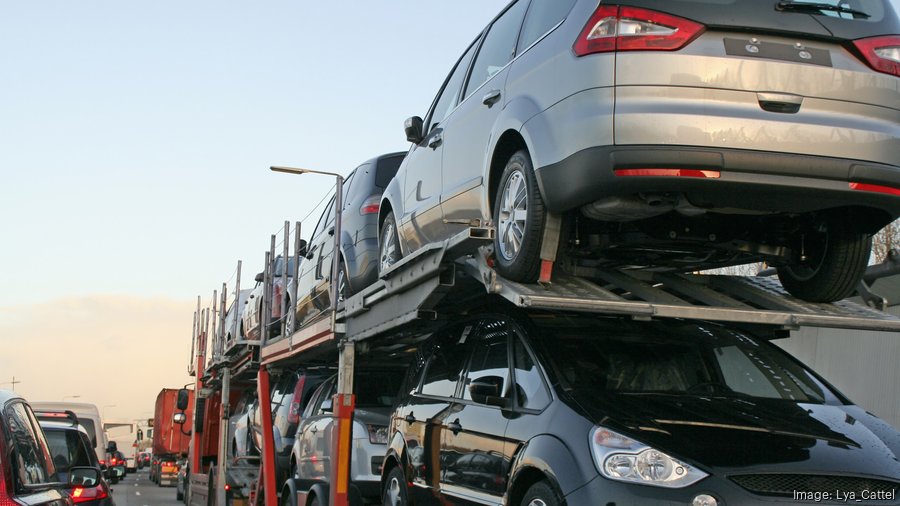Every facet of the auto industry is primed for change. That was the takeaway from a Council of Supply Chain Management Professionals gathering at the University of North Florida Wednesday, where leaders in auto processing, shipping and manufacturing took the stage.
The industry is preparing for the advent of autonomous vehicles, which will radically change driving, buying and traveling behaviors. More and more teens are foregoing drivers' licenses, relying on ridesharers like Uber instead — a seismic shift in the market. Meanwhile, those who do buy vehicles have flipped from buying cars 70 percent of the time to SUVs 80 percent of the time over just a few years.
While addressing these significant market trends, auto professionals also have to contend with a pronounced truck driver shortage, uncertain tariff conditions and emerging technologies like blockchain.
The event's speakers - Kirk Williams, chairman of auto hauler Proficient Auto Transport; Steve Taylor, CEO of Amports, one of North America's largest auto processors; Dean Pearson, chief operating officer of auto hauler Centurion Auto Logistics; and Ben Freedman, vehicle logistics analyst for Volkswagen Group of America - wrestled with each of these issues.
Here are some of the key takeaways about the future of the auto industry:
- Expect cars to unload themselves from ships, but expect humans to deliver them to your doorstep. Taylor sees major potential for autonomous vehicles to unload from ships at the port by following markings, much like robots in an Amazon warehouse, but humans will still be needed to handle exchanges along the supply chain and to navigate city streets.
- Whether people drive to work in their own car or their Uber driver's, they still need a car. Projected vehicle sales are stable through 2022.
- Predicting demand changes, like the switch to SUVs, remains a major challenge. Much of the industry relies on manufacturer forecasts, but that still leaves auto haulers like Proficient and Centurion to make multi-million dollar bets on buying trucks that may be best suited to the wrong vehicle types.
- A shortage of truck drivers is an exacerbating problem in all shipping segments. The average age of auto haulers is over 50, and salaries over $100,000 have done little to attract younger drivers. To help combat this, auto haulers are lobbying to lower the age limit below 23, where it stands today, and are developing mentorship programs to attract drivers from other trucking verticals.
- Tariffs can be a blessing or a curse, depending on your role in the supply chain. Steel and aluminum tariffs drove up Centurion's new truck costs by about 7 percent, but tariffs have been a boon for Amports; Chinese manufacturers are shipping cars equipped with the bare minimum parts to the U.S., then relying on processors like Amports to add value in a non-tariffed environment.
